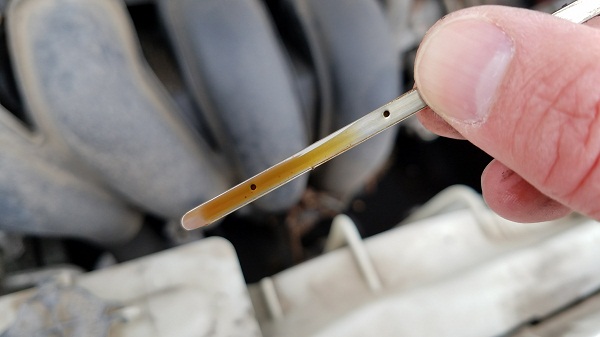Engine oil is a critical fluid that lubricates and reduces friction in vehicle engines. The appropriate engine oil will go a long way toward ensuring that your car runs smoothly. Engine oil has a variety of tasks in ensuring that an engine runs smoothly over time.
Overfilling or underfilling your car with engine oil is bad. It doesn’t matter if you’re using synthetic or organic oil. Every car has its recommended engine oil as well as the amount to be used for your engine. In case you mistakenly fall into the dilemma of overfilling your engine with oil for one reason or the other, there are adverse effects for that. Your engine won’t function optimally and will be subjected to stress. Just like in human body, overfilling your engine is like taking an overdose of a medication.
For petrol engines, you might start seeing or noticing some or all of these in your car when you overfill it with engine oil.
- Smoking (blue smoke) due to oil being forced into the combustion chambers.
- Oil leaks from oil filter seal, rocker cover gasket, PCV, oil pressure switches due to excess crankcase pressure.
- Damaged turbo oil seals (turbocharged engines).
- Smoking (blue smoke) due to oil above turbo oil return line (turbocharged engines).
- Damage to catalyst, due to oil being forced down the exhaust.
- Damage to oxygen sensors, due to oil contamination (oil being forced down the exhaust).
- Damaged oil control rings in the pistons.
Bent conrods (extreme cases if enough oil is forced into the combustion chambers, causing a hydrolock).
- Damaged oil pump.
- Damaged engine block (extreme cases if bent conrods have nowhere to go, other than sideways, smashing through the block).
- Oil starvation (extreme cases, if the crank webs are physically in the oil, beating it into a froth, resulting in insufficient flow).
- Damaged crank main seals (front and rear, due to excessive crank pressure).
- Fire! (Extreme cases whereby oil is forced out of the dipstick tube and / or PCV at high rpm, and onto a red – hot exhaust).
Don’t listen to those mechanics who would want to give you one thousand and one reasons why you should use 5-liters of engine oil instead of the 4-liters recommended by the manufacturer of your car. If you continue overfilling, you’ll end up creating more problems for your car.
How to Determine if Your Engine Has Too Much Oil
The quickest way to determine if there is too much oil in the engine is through the use engine oil dipstick. The dipstick has marks to show if your car has too much, too little, or the perfect amount of oil.Develop the habit of checking the level frequently most especially after oil change.
There are other indicators that will suggest you have an overfill problem. This includes blue exhaust smoke, a burning smell, an oil leak, or a high reading on your oil pressure gauge (if equipped). If the engine is running rough or your check engine light illuminates, the cause may be excess oil contacting the spark plugs and causing a misfire.
In case you have too much engine oil in your engine, you’ll need to drain it out or risk harming your engine. If you’re DIY savvy, you can do the draining yourself. If not, head to a competent mechanic workshop and get it done immediately.
Don’t procrastinate doing this for the sake of your pocket.
Image By TheCarColony
